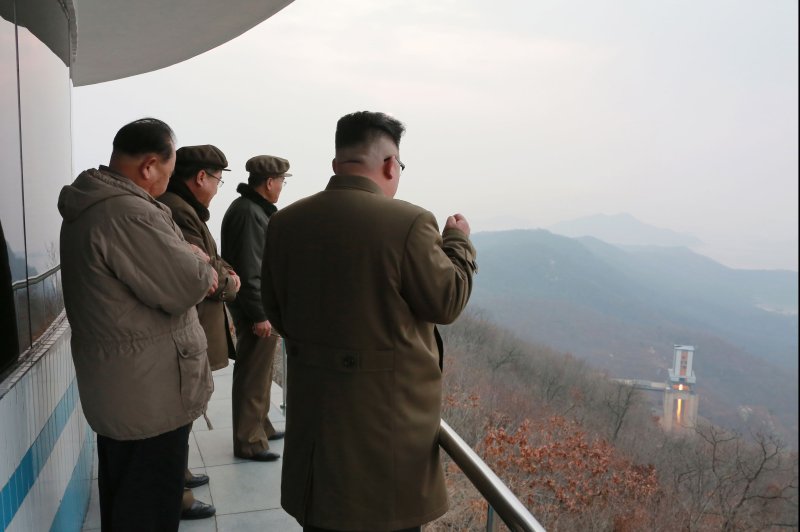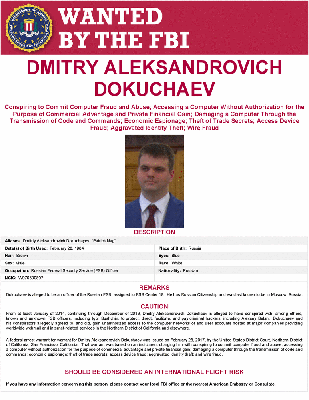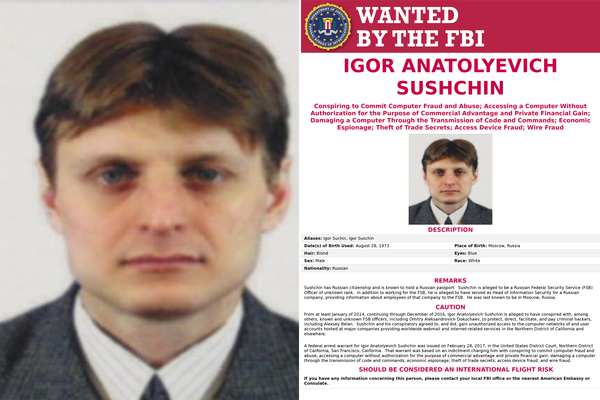A matter of note: Alfa Bank has FIFA as a customer. Under Loretta Lynch at DoJ, she prosecuted the FIFA fraud, Further, that pesky Trump dossier that was crafted by Christopher Steele is the same person that broke the case on FIFA. (Note the end of this press release).


Alfa Bank, a privately owned Russian bank, confirmed today that it has contacted U.S. law enforcement authorities for assistance and offered U.S. agencies its complete co-operation in finding the people behind attempted cyberattacks on its servers that have made it appear falsely that it has been communicating with the Trump Organization.
Alfa Bank confirmed a story in Circa News that it had been subjected to three new attempted domain name server (DNS) cyberattacks of increasing intensity over the last few weeks. In the attacks, multiple DNS requests were made by unidentified individuals, mostly using U.S. server providers, to a Trump Organization server. The DNS requests were made to appear as if they originated from Alfa Bank. The DNS responses from the Trump server were then erroneously returned to Alfa Bank, activating Alfa Bank’s automated security systems on February 18 and again on March 11 and 13. Alfa Bank has engaged the U.S.-based cyber forensics firm Stroz Friedberg to investigate these new attacks.
Alfa Bank believes that these malicious attacks are designed to create the false impression that Alfa Bank has a secretive relationship with the Trump Organization. In fact, there is not and never has been such a relationship.
New February 2017 attack on Alfa Bank server
On February 18, 2017, Alfa Bank experienced suspicious cyber-activity from an unidentified third-party. Specifically, the unidentified third-party repeatedly sent suspicious DNS queries from servers in the U.S. to a Trump Organization server. The unidentified individuals made it look as though these queries originated from variants of MOSCow.ALFAintRa.nET. As a result, the DNS responses from the Trump server were returned incorrectly to Alfa Bank’s server, which triggered Alfa Bank’s automated security system.
Alfa Bank believes that unknown individuals — using an identified U.S.-based service provider — are behind this recent attack, and that they are attempting to trigger verification signals between Alfa Bank and a server associated with the Trump Organization.
It believes that someone or some group manufactured this deceit by «spoofing» or falsifying DNS lookups to create the impression of communication between Alfa Bank and the Trump Organization. However, Alfa Bank’s DNS servers neither send nor receive email. Instead, they react when contacted by unwanted and unsolicited messages by sending out DNS verification signals asking, in effect, who is the server contacting Alfa Bank.
An Alfa Bank spokesperson said:
“The cyberattacks are an attempt by unknown parties to manufacture the illusion of contact between Alfa Bank’s DNS servers and ’Trump servers’.
«A simple analogy would be someone in the U.S. sending an empty envelope (in this case a DNS signal) to a Trump office (server) addressed to Trump, but on the back of the envelope the return address is Russia (Alfa Bank) instead of its own real address. The Trump office, recognizing there is nothing in the empty envelope to deal with, returns it as undelivered to Russia instead of to the U.S.-based sender. So, on cursory examination, Alfa Bank appears to have been receiving responses to queries it never actually sent.
«We have gone to the U.S. Justice Department and offered our complete co-operation to get to the bottom of this sham and fraud.»
Other indications of human intervention include the fact that the queries occurring in these logs included mixed uppercased and lowercased letters. The majority of DNS queries are machine based queries (for example, browsers and email clients), which would send lowercased queries to the DNS servers.
A few days after the February 18 DNS attack, Alfa Bank again started to receive inquiries from U.S. media outlets, including CNN, about allegations of cyber links with Donald Trump. No such link exists or, in fact, has ever existed between Alfa Bank and Mr. Trump or his organization.
An anonymous group has been trying for months to persuade news organizations to publish stories that such a link is real. Alfa Bank has asked reporters who have contacted it about the traffic to assist by letting the bank know if someone is trying to create the false impression that Alfa Bank has business or other dealings with Mr. Trump.
Two new confirmed March 2017 attacks on Alfa Bank server
On March 11 and 13, Alfa Bank was subjected to two new DNS attacks using similar methods. These attacks appear to have been orchestrated from multiple servers primarily in the U.S.
Between 02:00 and 07:00 (Moscow Time) on March 11 and at 21:00 on March 13, Alfa Bank experienced suspicious cyber activity from an unidentified third party or parties. The unidentified third parties or party repeatedly sent unusual DNS queries to a Trump server, the responses to which again ultimately triggered Alfa Bank’s automated security system.
Over a five-hour period on Saturday — and again on Monday — Alfa Bank received more than 1,340 DNS responses containing mail.trump-email.com.moscow.alfaintra.net.
These malicious and seemingly co-ordinated DNS attacks are coming from unidentified users using a variety of predominantly U.S. servers, including Google and Amazon web services. These IP service providers are inadvertently allowing their infrastructure to be used to attack Alfa Bank.
Alfa Bank suspects the unidentified parties are attempting to cover their tracks by using cloud services from these providers.
Given the frequency of the attacks and the variety of Internet service providers used in the attacks, Alfa Bank’s working hypothesis is that these new attacks are being launched from a botnet.
Possible third new attack In March 2017
Alfa Bank has now started to monitor all incoming messages to its servers containing the word «trump.» This monitoring has revealed that Alfa Bank also is receiving unsolicited marketing emails from «marketing@trumphotels.com.» These incoming spam marketing emails also trigger Alfa Bank’s security system, which automatically sends multiple DNS verification requests back to the originating server — here, the Trump server — in order to ascertain the identity of the sender.
Alfa Bank does not know whether these marketing emails are legitimate, or whether a third-party is orchestrating the campaign in another attempt to create the false impression of inappropriate communications between Alfa Bank and the Trump Organization.
In response to media questions that started last September, Alfa Bank asked Mandiant, one of the world’s leading cyber experts, to investigate allegations suggested by an anonymous cyber group of a link between Alfa Bank and Trump, based on unverified DNS logs.
Mandiant completed its independent investigation late last year. After examining Alfa Bank’s system both remotely and on the ground in Moscow, and the unverified DNS data presented to the media by the anonymous cyber group, Mandiant concluded that there is no evidence of substantive contact, such as emails or financial links, between Alfa Bank and the Trump Campaign or the Trump Organization.
Mandiant investigated (1) the DNS data given to the media, which journalists had shared with independent DNS experts, and (2) Alfa Bank servers for any evidence of links.
Mandiant concluded:
DNS data — There is no information that indicates where the list (obtained by reporters) has come from. The list contains approximately 2,800 look ups of a Domain Name over a period of 90 days. The information is inconclusive and is not evidence of substantive contact or a direct email or financial link between Alfa Bank and the Trump Campaign or Organization.
Alfa Bank servers — Nothing we have or have found alters our view as described above that there is no evidence of substantive contact or a direct email or financial link between Alfa Bank and the Trump Campaign or Organization.
Mandiant’s working hypothesis is that the activity the reporters’ sources alleged last year was caused by an email marketing/spam campaign possibly targeted at Alfa Bank employees by a marketing server, which triggered security software.
Earlier this year, Alfa Bank launched another investigation to find out who was — and maybe still is — behind this elaborate hoax.
Access to other’s DNS data is highly privileged and is usually independently examined for academic purposes and cyber security research. Therefore, the examination and sharing of DNS data by the people involved in these fraudulent activities brings into question whether these data were acquired lawfully and whether it was ethical to misuse privileged access in order to manufacture a deceit.
Alfa Bank’s working hypothesis is that an individual — possibly well known in internet research circles — may have fed selected DNS data to an anonymous cyber group to ensure they reached a specific (and erroneous) conclusion. Alternatively, the cyber group may have been complicit in the deceit. In the most recent cases, unknown individuals demonstrably attempted to insert falsified records onto Alfa Bank’s computer systems designed to create the same impression.
An Alfa Bank spokesperson said: «The anonymous cyber group, which is led according to news accounts by ‘Tea Leaves,’ cannot produce evidence of a link because there never has been one. Alfa Bank believes that it is under attack and has pledged its complete cooperation to U.S. authorities to find out who is behind these malicious attacks and false stories.»


 UPI
UPI Tillerson at the DMZ lexpress.fr
Tillerson at the DMZ lexpress.fr




